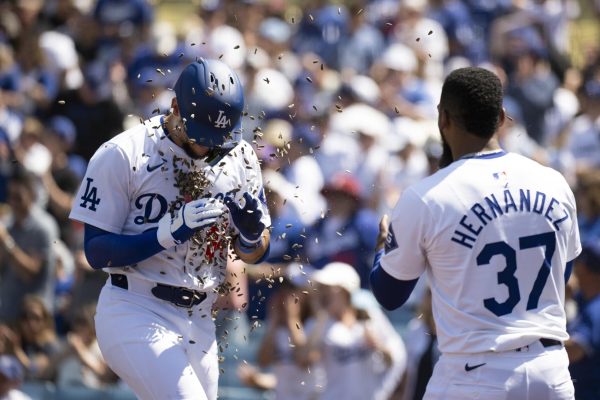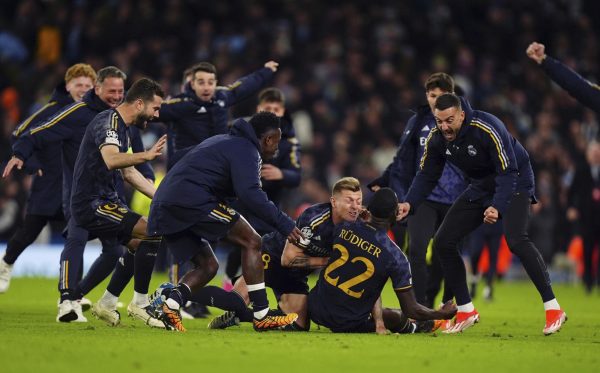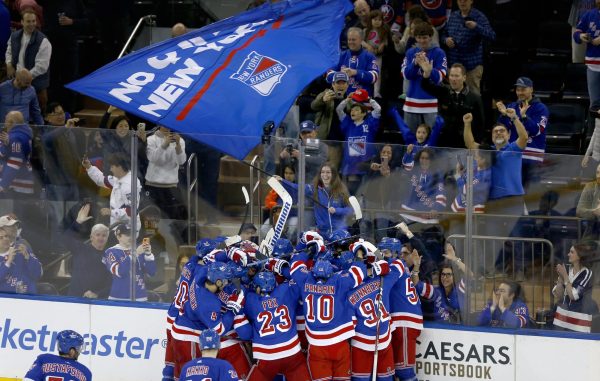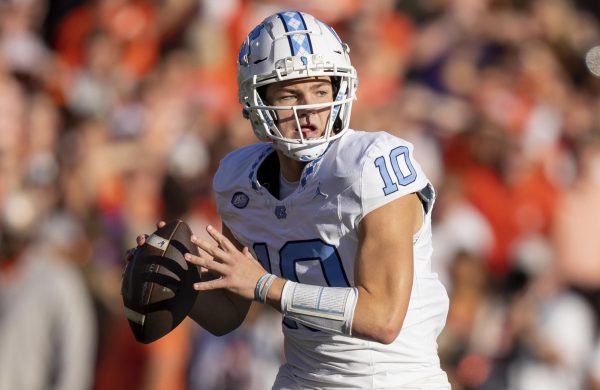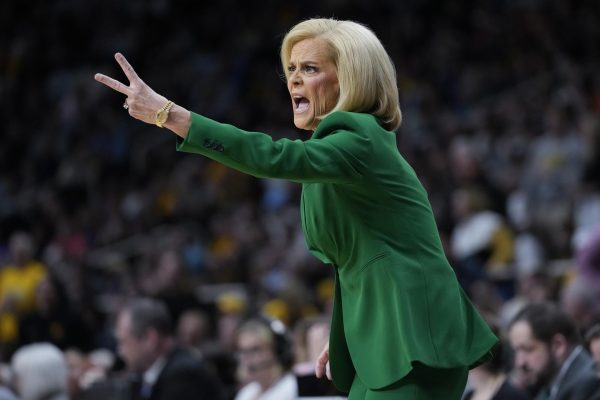Countdown to South Africa: Group A
On May 14, 2004, FIFA made a move unprecedented in international sports, awarding the World Cup to Africa for the first time. Since then, South Africa has been at the center of numerous controversies, ranging from construction strikes to accusations of corruption among South African politicans. But still, the country has shown resolve in preparing for the tournament, and the opening match is now just four months away, when all the world’s eyes will soon turn to Africa.
While this tournament will be especially loaded with political and cultural implications, one thing must not be lost – the best athletes in the Beautiful Game will be on showcase for a solid month, for all the world to admire.
To prepare you for the footballing side of the World Cup, the Maroon-News will be previewing all eight World Cup groups over the semester, culminating in our final predictions at the end of April. To start, we take a look at Group A, containing host country South Africa, Mexico, Uruguay and France.
South Africa
As hosts, South Africa qualified automatically for the World Cup, and for the Bafana Bafana, that’s a very good thing. Despite automatic qualification, South Africa took part in African (CAF) World Cup Qualifying, as it doubled as the qualification tournament for the 2010 African Cup of Nations. They put in an awful performance, failing to advance through any stage of qualifying, coming second in their group. The low point was most certainly a 1-0 away loss to Sierra Leone, currently ranked 138th in the FIFA World Rankings. Since then, South Africa has been underwhelming, to say the least, scoring just one goal in their final seven matches of 2009. That goal came against Madagascar, ranked 158th in the world.
Given their atrocious form over the past few months, one could pretty safely assume that South Africa will bomb out of the World Cup in dramatic fashion, and be the first World Cup host not to progress out of the group stages. What cannot be underrated, however, are the benefits South Africa will enjoy as a result of home field advantage. In the 2009 Confederations Cup, also hosted in South Africa, the side beat New Zealand and tied Iraq to reach the semifinals, finishing the tournament with a 3-2 extra time loss to world number one Spain. The constant drone of the vuvuzela threw their opponents off of their game, leading to complaints from coaches and players from almost all of the participating nations. The vuvuzela will again be at center-stage this summer, and has the ability to propel South Africa to victory over anyone.
Helping South Africa in their quest to avoid infamy is manager Carlos Alberto Parreira, who has already led teams in five different World Cups, guiding Brazil to the 1994 World Cup title. Parreira, however, was not at the helm for South Africa during the Confederations Cup, having left the post to tend to his family during that summer, so South Africa’s solid performance in the tournament cannot be attributed to him.
On the field, South Africa is captained by Portsmouth defender Aaron Mokoena who, with 99 caps, is the country’s all-time leader in international appearances. He is the anchor of the Bafana Bafana backline, and a poor performance from Mokoena will doom his side, given the potentially explosive attacks of Mexico and France.
West Ham striker Benni McCarthy, as South Africa’s all-time leading goalscorer, leads the South African attack, and is directly behind Mokoena in international caps, with 83. McCarthy’s club form, however, has been roundly criticized, as he has only netted one goal in league play
this season.
Player to watch: Goalkeeper Rowen Fernandez. In order for South Africa to succeed in the World Cup, they will need a stellar performance from their keeper. Like other less talented sides in the World Cup, the South African defense will be frequently broached, and opponents will run up the score if Fernandez doesn’t perform beyond usual expectations.
France
No team in the World Cup has been placed under more scrutiny than Les Bleus. After making the final in 2006, France has suffered a drastic drop in form that many attribute, correctly, to the retirement of Zinedine Zidane. Others criticize the management style of Raymond Domenech, who has been known to use astrology to assist him in selecting his teams. Many French fans feared that World Cup qualification was in danger, and rightly so. It was only after defeating the Republic of Ireland in a UEFA World Cup qualifying playoff, courtesy of an egregious Thierry Henry handball, that France booked their place in South Africa.
This controversial qualification led to calls from football federations across the globe to exclude France from the tournament in South Africa. Ireland filed a formal complaint to FIFA, arguing for either a replay, replacing France in the World Cup, or being included as a special 33rd entrant. In the end, however, FIFA sided with the French and the officials who patrolled the divisive Ireland – France match, allowing France to participate in the World Cup. Stakes were obviously high in this controversy, as appearing in the tournament is worth $8 million, at a minimum, for the
nations involved.
France has yet to play a match since their strenuous qualifying campaign ended, but their performance in qualifying has muted the enthusiasm and optimism of the fans in Paris. Despite a relatively weak qualifying group, with minnows like the Faroe Islands and Lithuania, France had a run of seven matches where they failed to score more than one goal. In this run, they barely scraped out a 1-0 win in the Faroes, drew Romania at home, 1-1 and fell to Nigeria in a friendly at home, 1-0. France will not be tested much heading into South Africa, as their only scheduled friendly against a world top 25 team is against Spain on March 3. Other opponents include Costa Rica, who failed to make it out of a weak CONCACAF, Tunisia and China.
Player to watch: I hate to be cliché, but there is no other choice than Thierry Henry. The Barcelona forward will almost certainly be the target of derision from fans in South Africa, and has a lot to prove. If his rumored post-World Cup move to Red Bull New York of Major League Soccer comes to fruition, this will be Henry’s last appearance on a big stage. He will be desperate to prove his worth to France, and cement his legacy as the greatest French player of all time. In South Africa, as Henry goes, so will France.
Uruguay
In order to advance to the 2010 World Cup, the Celeste had to go through CONMEBOL qualification, which consists of a round robin against the other nine teams, and is considered one of the toughest qualifying campaigns in the world. Throughout qualification, Uruguay had mixed results. The team won four matches at home, tied three and earned two wins and three draws on the road, giving them a 6-6-6 record and a total of 24 points, good for fifth in the confederation. Their most important mtches were the three ties at home – 2-2 vs. Chile, 0-0 vs. Ecuador, 1-1 vs. Venezuela, and two devastating defeats on Uruguayan soil at the hands of Brazil, 4-0, and Argentina, 1-0.
If the Celeste had earned wins in each of the three ties and at least a tie against their Argentine neighbors, their qualification would have had a much different feel, since Uruguay would have earned a top four finish and a direct ticket to South Africa. Since the fifth place team is mandated to play a round robin playoff against the fourth place team from CONCACAF, it took them longer than they hoped to secure the berth. Uruguay’s rival in the playoff ended up being Costa Rica, whom Uruguay defeated with an aggregate score of 2-1, earning a victory at the notorious Estadio Saprissa in Costa Rica. While the Uruguayan team did well to defeat Costa Rica to advance, they should have taken care of business at home. The team should also have obtained a victory on the road at Peru, instead falling 1-0 to the worst team in South America.
Uruguay is in select company, as the team is only one of five nations to have won multiple World Cups. Their first was won at home in 1930 in the inaugural World Cup tournament. The second followed 20 years later in Brazil, on a day that will forever live in infamy for the hosts, but in glory for the Uruguayans in a match known through the entire world as the “Maracanazo.”
While Uruguay has participated in a total of 11 World Cups, it has been a while since they were in anyway relevant. In its last participation in 2002, Uruguay finished in the 26th position out of 32 teams and in last place in their group. Their group was composed of then-defending champion France, surprise team Senegal and Denmark. The South Americans fell against Denmark in their first game 2-1, then proceeded to a scoreless tie with France. In their final game against Senegal, needing a win to advance, they played to a 3-3 tie, despite falling behind 3-0 in the first half. Needless to say, Uruguay will enter the 2010 tournament carrying a chip on its shoulder, looking to provide their long-suffering fans with a taste of the glory obtained by the 1930 and 1950 teams.
Player to watch: Atlético Madrid’s forward Diego Forlan.
Mexico
Mexico kicked off their campaign for South Africa in simple fashion, dispatching Central American minnows Belize, 9-0 on aggregate. In the following round, Mexico participated in a four-team round robin group along with Honduras, Jamaica and Canada. In the next stage, Mexico barely advanced, sending the nation into panic, moving to the final “Hexagonal” only on goal differential over Jamaica.
In the final round, the Mexicans, historically known as the colossus of the CONCACAF, took the second automatic bid for the World Cup, finishing one point behind the United States. Halfway through the round, however, the team was in a tough spot. Heading into the 2009 CONCACAF Gold Cup, the Mexicans sat in fourth place, at the time destined to take on the fifth place team from South America. Mexico then began its resurgence in the tournament, beating the host United States for the first time in ten years on American soil by a surprising score of 5-0, though the Americans were starting B-squad, at best. They then proceeded to dominate in the second leg of the final qualification round to advance to South Africa. The Mexicans went perfect at home, winning all five games, which proved to be crucial, as they only won one road game, tied one and lost the other three.
Mexico has hosted the World Cup twice in its history, and is the only country from the Americas to hold that honor. The Mexican national team’s best performances have both been when they hosted the Cup in 1970 and 1986, respectively. On both occasions, they reached the quarterfinals. In 1986, they were eliminated by the tournament runner-up, West Germany, going out on penalty kicks. This tournament could arguably be considered Mexico’s best performance to date, since they did not lose a single game in regulation.
Mexico’s last tournament appearance was in 2006. Mexico served as the top seed of a group they shared with Portugal, Angola and Iran. The Mexicans advanced in second place behind Portugal with five points. They defeated Iran in the first game, tied Angola in the second one and fell to Portugal in the third. In the Round of 16, Mexico played Argentina, to whom they lost a heartbreaker, 2-1, in extra time. The Mexicans’ goal in this World Cup will be to make their first semifinal appearance, hoping to finally be respected and considered among the elite football teams in the world.
Player to watch: Galatasaray’s Giovani dos Santos.
Contact Michael LeClair at [email protected] and Jaime Heilbron at [email protected].


